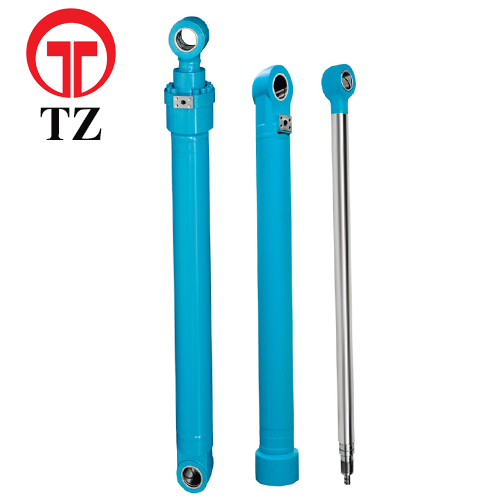Excavators are equipped with hydraulic cylinders that generate and transfer forces necessary for digging, lifting, swinging, and adjusting the position of the bucket and other components. The coordinated action of different types of hydraulic cylinders facilitates the diverse movements and capabilities of excavators. In diesem Artikel, we will examine key hydraulic cylinders that power excavator operation.

Armzylinderbaugruppe
The arm cylinder assembly consists of two linked cylinders – the reach cylinder and the swivel cylinder. This dual cylinder system controls raising and lowering of the excavator arm which holds the bucket. The large reach cylinder extends the arm outwards from the cab. In der Zwischenzeit, the swivel cylinder swings the arm from left to right enabling a full range of digging motion. These synchronized telescopic actions of the reach and swivel cylinders provide the forces needed to manipulate the bucket through earth, sand, gravel and other materials.
Bucket Control Cylinder
Opening and closing of the bucket is powered by the bucket control cylinder. This hydraulic cylinder is connected to the bucket’s hinge or switch. When pressurized hydraulic fluid enters the cylinder, it extends the internal piston rod outwards. normally we call it mini excavator hydraulic cylinder. This pushes against the bucket switch, forcing the bucket open. Retracting the piston rod by releasing hydraulic pressure causes the bucket to close. Skillful control of the bucket cylinder gives the operator precision over scooping and dumping actions.
Auslegerzylinder
On larger excavators, a heavy-duty boom cylinder is used to raise, lower and move the boom. Expanding the boom cylinder telescopes the boom outward, increasing the machine’s digging radius. This allows accessing a larger work area around the excavator without needing to move the tracks. Contracting the cylinder lifts the boom upwards, enabling greater digging depth and height.
Swing Cylinder
The swing cylinder facilitates rotation of the excavator’s upper structure or house. Mounted internally along the centerline of the undercarriage, the swing cylinder pivots the cab, boom and arm assembly together left or right. This expands the working zone around the machine without moving the tracks. The operator leverages the swing cylinder to easily reposition the arm for efficient load cycles.
The coordinated actions of multiple hydraulic cylinders empower excavators to dig, Aufzug, swing and move material effectively. Key cylinders like the dual arm cylinder, Schaufelzylinder, boom cylinder and swing cylinder provide distinct movements through their extension, retraction and swiveling under hydraulic pressure. Proper maintenance and operation of these heavy-duty cylinders is critical for excavator productivity and uptime. While simple in principle, hydraulic cylinders transform and transmit immense forces to accomplish useful mechanical work. They are an engineering marvel at the heart of excavator functionality.
